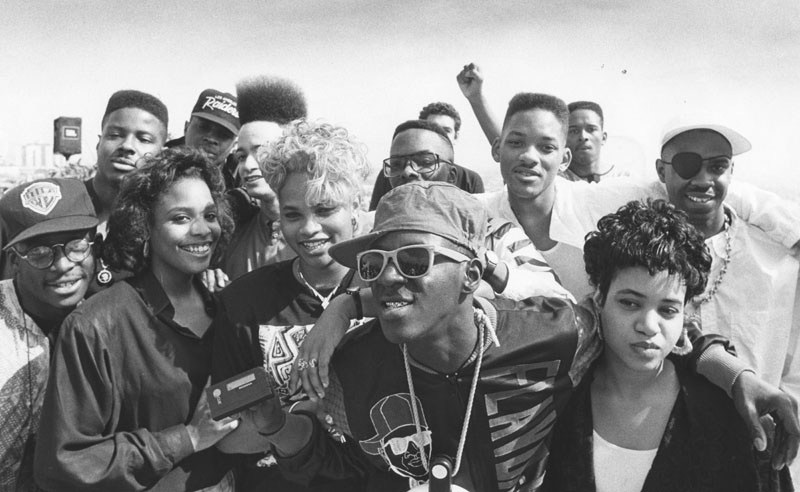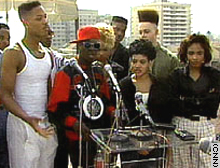
The 1989 Grammy boycott by Hip Hop

In 1989, Fresh Prince and Jazzy Jeff won the very first Grammy for Best Rap Performance. However, the win was not televised. Perhaps the higher ups couldn’t imagine people wanting to see rappers being presented with an award. Or maybe they didn’t know what would happen if they actually let rappers get on stage and speak freely, without a script. Whatever the case was, the rap duo wasn’t havin’ it. They boycotted, along with tons of other legendary rappers and Hip Hop icons.
All of the rap nominees from that inaugural year banded together and decided not to attend the show — instead, they filmed an episode of “Yo! MTV Raps” — in hopes of earning the respect and recognition they felt that they and the genre deserved. And it worked, as the next year, the show aired the award for Best Rap Performance (Young MC won for “Bust A Move”).

Joining DJ Jazzy Jeff and Will Smith were fellow nominees LL Cool J and Salt-n-Pepa. Salt-n-Pepa issued the following statement: “If they don’t want us, we don’t want them.”
Get More:
Music News
One notable rap act however, did NOT participate in the boycott. Kool Moe Dee, a fellow nominee took over the presenter’s role (for R&B male vocal) that had been offered to Smith.
Kool Moe Dee, who used the televised slot to do a short rap portraying rap music as a positive influence, was critical of the boycott when meeting the press backstage that night.
“One management company started it and went to the papers and figured all the rappers would follow,” he said in reference to Rush Artist Management, which handled D. J. Jazzy Jeff & the Fresh Prince and fellow boycotters Salt-N-Pepa and L. L. Cool J.
“It was wrong. They were trying to turn it into a race thing. . . . I felt it was a negative move not to come to the Grammys–like crying over spilled milk.”
There have been other boycotts of the Grammy’s by Hip-hop artists:
In 1991, Public Enemy turned down their Grammy invite, it had more to do with the committee’s lack of respect for hip-hop at large. The group stood in solidarity with their label honcho, Def Jam’s Russell Simmons, who at the time remarked, “[it’s] the same old broken-record snub of inner-city contributions to the music industry.” This was largely because the Grammys didn’t air the presentation of hip-hop-related awards, instead opting to announce the winners prior to the telecast.
In 2002, Jay-Z, taking notes from his predecessors, decided to boycott the Grammys as well. He had a few things to say, upset that rap music wasn’t getting its proper respect.
“I am boycotting the Grammys because too many major rap artists continue to be overlooked. Rappers deserve more attention from the Grammy committee and from the whole world. If it’s got a gun, everybody knows about it; but if we go on a world tour, no one knows.”
The stance by those artists has led to more respect from the Grammy producers. Hip Hop is prominently featured and the performances garner the most viewers (advertising dollars talk).
In 2009, although it may not be the greatest performance ever but a very iconic one. What made this worth watching was the “rap pack”. T.I. was able to gather all the features on the track for the Grammys (they never shot a video for this song) which rarely happens on hip hop posse cuts at awards shows. There is always that one feature missing, but T.I. pulled it off with this one and proved hip hop’s dominance in the industry.
